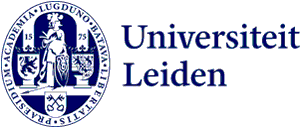
Faculty Council FSW: an update on participation
The academic year 2021-2022 is already past the halfway mark. That also means that the current members of the Faculty Council have been at work for more than half a year. Time for an update with staff members Evelien Wolthuis and Kiki Zanolie.

The Faculty Council has been composed ‘as new’ at the beginning of this academic year, although some familiar faces were present. We already know Evelien Wolthuis as the former chair during her first term (2019-2021). This year Kiki Zanolie has assumed that role.
During its first meetings, the Faculty Council has formulated a list of priorities (in Dutch) that deserve special attention according to the Council. We spotlight two of them: the strengthening of participation and the accessibility of education in hybrid times. What steps did the Council take on these subjects? Evelien and Kiki catch up with us.
The strengthening of participation
As Council chair, Kiki has been working hard to bring together different participation bodies within the Faculty. The Faculty Council isn’t the only one after all: the Institute Councils and Programme Committees also exist.
‘Programme Committees run into similar issues and sometimes have come up with smart solutions for them. But they don’t know that very well of each other,’ explains Evelien. ‘We as the Faculty Council saw a role for ourselves there: a connecting factor between bodies.’
An example of this is the intake restriction of Psychology master specialisations, an alteration that has to be treated by the Programme Committees as well as the Faculty Council and the University Council. Those interconnections are very useful and important in such a case: it is good to know what others have already worked on and what their thoughts were.
Kiki is regularly speaking with chairs of other participation bodies. ‘It is a good thing to work together to denounce certain things. By seeking contact with each other, we can optimise educational processes that concern the entire Faculty.’
The accessibility of education in hybrid times
During the corona crisis, all education was digitised in a hurry. By now, we have arrived at the point where online and hybrid education is phased out again.
Evelien: ‘It’s logical that everyone wants to keep the good things. But what we have seen recently, is that hybrid education is a second-rate alternative for people who couldn’t physically come to the university because of corona. Some lecturers are of the opinion that it is impossible to make hybrid classes work and that the quality of education is suffering too much because of it – then it’s mediocre for all students. On the other hand, some students say: it makes studying possible for me.’
Kiki: ‘Of course we shouldn’t forget that students who for example are disabled should still be able to study, but at the same time studying at a university is about coming together and critical interaction. The question is: how can we organise our academic community in the best way possible and find the balance between accessibility and safeguarding the quality of education?’
The role of the Faculty Council is not to make policy, Evelien and Kiki emphasise, but to make sure that all stances on the matter are heard. The Faculty Board then uses that information in what they do. For example, there is currently a long term plan in development on blended learning.
The coming months: the vision and strategy plan
One of the most important things that is currently taking place, is the vision and strategy plan of the Faculty. The Faculty Council is obviously on top of the process and provides constructive feedback. Apart from that, all Councilmembers are on the lookout in the Faculty to pick up on what is going on in the community.
‘The plan contains topics that practically determine how we want to interact with each other in the next five years,’ says Kiki. ‘That is why it is important that as many people as possible give their opinion and input on it.’
Evelien and Kiki therefore call on you to join of the feedback sessions or, if you are not able to, share your opinion on the vision and strategy plan with the Faculty Council via e-mail. Or just talk to one of the Councilmembers, now that we can all be found more often at the Faculty again
Text: Emma Knapper
